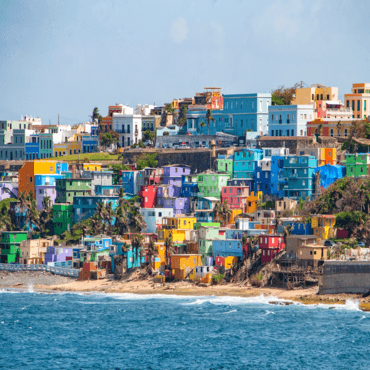The New Standard: Making Events More Sustainable
Sustainability is no longer optional – it’s expected. In regions like Europe, regulations such as the Corporate Sustainability Reporting Directive (CSRD) are pushing companies to account for their environmental impact. Customers don’t just want compliance, they expect leadership in sustainable event practices.
It’s also about reputation. Attendees notice when events fall short, whether it’s single-use plastics or lack of eco-conscious planning. And it’s not just the client’s responsibility—event agencies must lead the way. That’s why BCD Meetings & Events joined Germany’s Network of Sustainable Event Agencies, where we co-authored a Manifesto for Sustainable Action and collaborated to raise industry standards.
Is sustainability especially important to younger audiences?
Yes. Younger generations are sustainability-savvy and hold events to high standards. They notice, and care, how events are designed. Sustainability also helps attract new talent to the industry, offering a way to contribute to global goals, while working in a dynamic and creative field.
Where should planners begin their sustainability journey?
Start by aligning with your client’s sustainability goals such as carbon reduction, social impact or DE&I. Then embed those priorities from the outset of planning.
BCD M&E offers tools to support this:
- Carbon Calculator: Measures CO₂ emissions before and after events, guiding decision-making and reporting.
- Event Checklist: Helps planners rethink every step—including attendee lists (hybrid options reduce travel emissions), materials and design.
- Destination Selection: Use the Global Destination Sustainability Index (GDSI) to evaluate cities based on transport, energy, and infrastructure. Train-accessible destinations can significantly cut emissions.
- Local Sourcing: Choosing local suppliers and catering not only reduces transport emissions but supports regional economies.
Sustainability should be a core design principle, not an afterthought.
How important is venue selection?
Choosing a sustainable venue is key to reducing environmental impact and improving attendee experience. Look for venues powered by renewable energy, with walkable access from hotels, and strong sustainability policies—including food waste management and DE&I initiatives. These efforts contribute to broader UN Sustainable Development Goals (SDGs).
How can planners partner with sustainable venues?
Start early and align on goals. Our Venue Scorecard helps evaluate potential partners based on:
- Certifications (e.g., ISO 20121, LEED, Green Key)
- Sustainable practices (renewable energy, waste reduction)
- Collaboration (catering, materials, and measurable KPIs)
- Expertise (many venues have sustainability teams ready to support)
How can social media support sustainability efforts?
Social media is a powerful tool to build enthusiasm and transparency. Sharing behind-the-scenes planning, success stories, and impact metrics helps employees and attendees feel part of the journey. It also sets expectations, explaining choices like plant-based menus or reusable materials ensures buy-in and understanding.
Across the industry, we’ve seen what’s possible when companies commit to smarter, more sustainable choices. We encourage you to take the next steps on your sustainability path and keep the conversation going. Whether you’re just starting or ready to scale, there are simple, proven actions you can take right now. And you don’t have to figure it out alone.
Discover BCD Meetings & Events Sustainability solutions. Ready to put sustainability into action? Let’s talk.
Originally published July 21, 2025 9:00:00 AM
Sign up to The Point
"*" indicates required fields


